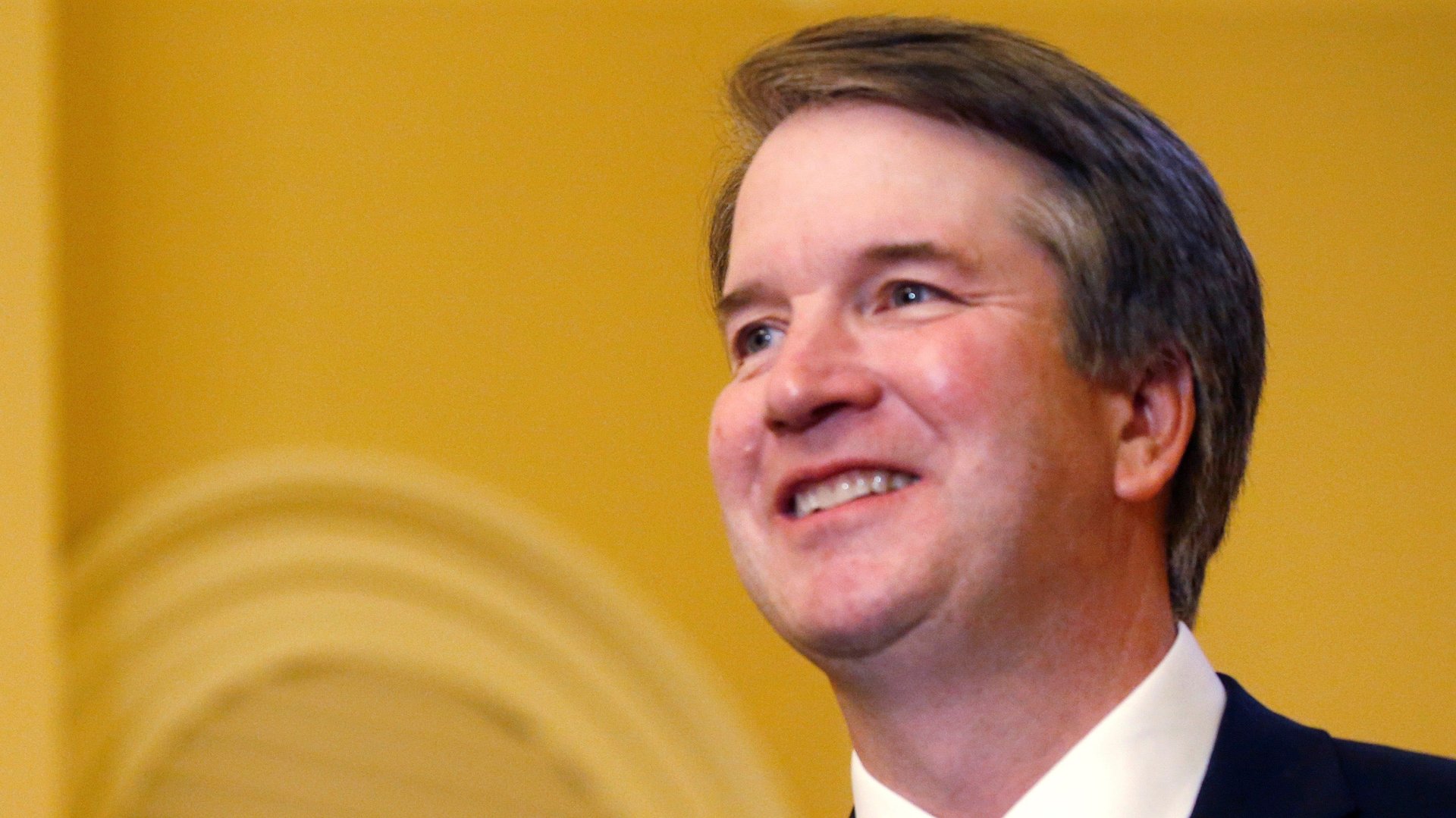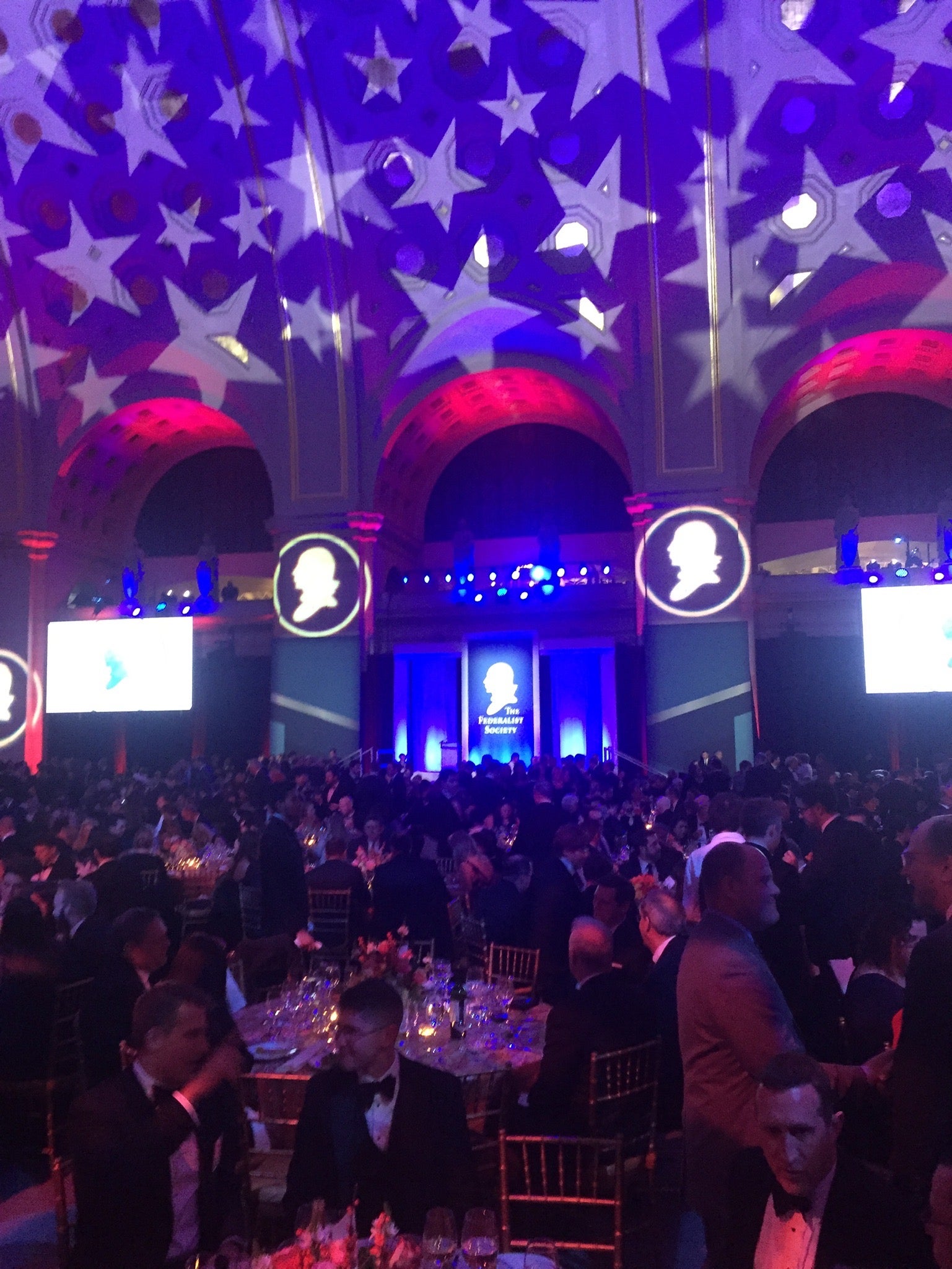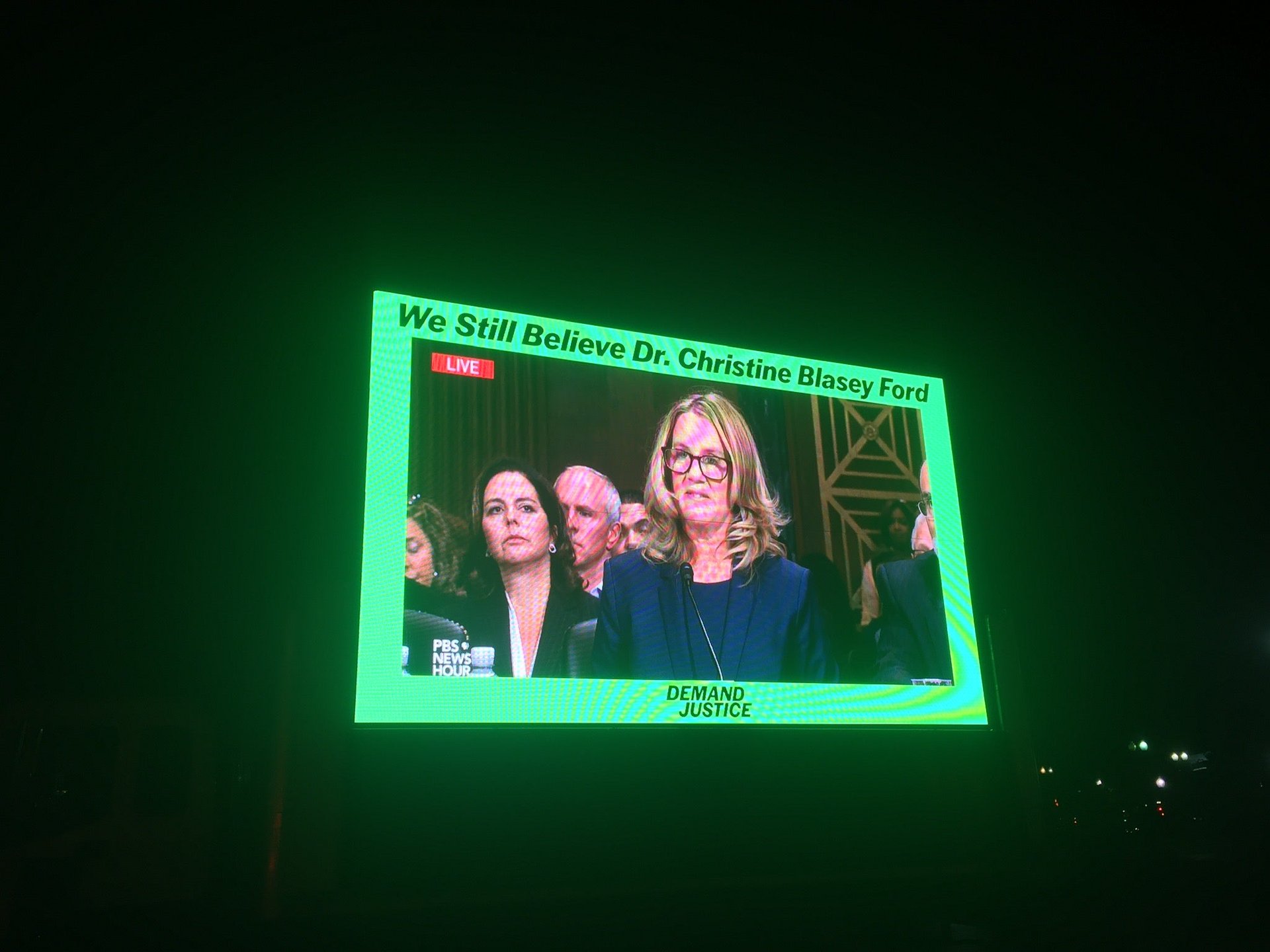Kavanaugh jokes and gets choked up in his first speech as a SCOTUS justice
Yesterday (Nov. 14), US Supreme Court justice Brett Kavanaugh gave his first public speech since his appointment last year. His controversial Senate confirmation hearings loomed large as the justice joked, spoke of gratitude, and got choked up at the annual Federalist Society lawyers conference in Washington, DC.


Yesterday (Nov. 14), US Supreme Court justice Brett Kavanaugh gave his first public speech since his appointment last year. His controversial Senate confirmation hearings loomed large as the justice joked, spoke of gratitude, and got choked up at the annual Federalist Society lawyers conference in Washington, DC.
“Matt Damon would have got through this,” Kavanaugh quipped after crying when recalling his daughters praying for him during the confirmation process. It was a reference to the actor’s cutting 2018 impersonations of Kavanaugh’s Senate testimony on Saturday Night Live, and not the only time the justice showed a sense of humor.

Kavanaugh joked about his brotherly rivalry with Neil Gorsuch, a longtime friend and now his senior on the court. He complained that the first decision he wrote was a “9-0 opinion about arbitration that no one ever read.” But his one consolation is that former justice Anthony Kennedy sent him a note saying he liked it better than Gorsuch’s first opinion.
The junior justice also boasted about taking over Gorsuch’s humble duties when he joined the bench, “most importantly” serving on the court cafeteria committee and crafting a legacy. “When I arrived I noticed that the cafeteria did not serve pizza,” Kavanaugh said. ” I thought ‘what an outrage!'”
He proposed adding pizza to the menu and promised that in a few weeks people will be able to get pizza in the Supreme Court cafeteria. “So my legacy is secure,” he explained. ” And it’ll be fine by me if I’m forever known as ‘The Pizza Justice.'”
But he probably won’t be known for that. As Kavanaugh’s own speech seemed to acknowledge, for some time to come he will most likely be remembered for something much less amusing.
Outside of Union Station, where the society’s banquet was being held, a large truck with a screen on the side played the Senate testimony of Christine Blasey Ford, who last year accused Kavanaugh of sexual assault when they were in high school. The words “We Still Believe Dr. Christine Blasey Ford” ran along the top.

People around the station stopped to listen and take pictures.
Inside, security was tight as dinner was being served to the legion of conservative and libertarian lawyers dressed in tuxes and gowns.
Yet, over the hoots and applause that accompanied the standing ovation given to Kavanaugh, the sound of shrieking rape whistles pierced the air. It seems unlikely that these came from any of the 2,300 attendees who paid $200 to $250 a seat to hear the justice, which leaves perhaps rebellious members of the banquet staff.
Still, Kavanaugh was not deterred, and the whistling abruptly ceased minutes into his speech.
He went on to spend the remainder thanking his new colleagues on the Supreme Court, his family, friends, priests, law clerks, teachers, students, fellow parishioners, and his “basketball and running buddies.” He vowed to make it his life’s mission to continually express his gratitude. He spoke of sports, fairness, faith, remembering to stand in another’s shoes, and being open to all ideas.
He did not, however, talk about politics, in stark contrast to the evening’s earlier speakers, Republican Senate majority leader Mitch McConnell and former White House counsel Don McGahn.
Instead, the justice devoted much of his time to highlighting the civility of the Supreme Court. Kavanaugh talked about sharing 60 lunches a year with his fellow justices, every conference and oral argument day. The rule is that they aren’t allowed to talk about work, and the result, he said, is that it helps them maintain cordiality through difficult deliberations.
He called his colleagues “collegial, gracious, and respectful,” and singled out Ruth Bader Ginsburg as “an inspiration.” Kavanaugh named each of the justices in his speech and concluded, “They are patriots. They love our country.”
The junior justice wasn’t shy about showing how he and his family had suffered during the confirmation process, revealing unseemly hints of the self-pity he displayed then, a quality Damon had mocked in comedy.
But Kavanaugh’s stated theme was gratitude, and he appeared intent on sending a positive and utterly uncontroversial message. “My final thought for the night is that I’m an optimist,” he said. “I am optimistic about the future of America and our independent judiciary.”
Kavanaugh described a painting hanging in his chambers depicting the sunrise side of a mountain and quoted the words his former clerks had framed below it: “I live on the east side of the mountain. It’s the sunrise side, not the sunset side. It’s the side to see the day that is coming, not the side to see the day that is gone. The best day is the day coming, with the work to do, with the eyes wide open, with the heart grateful.”